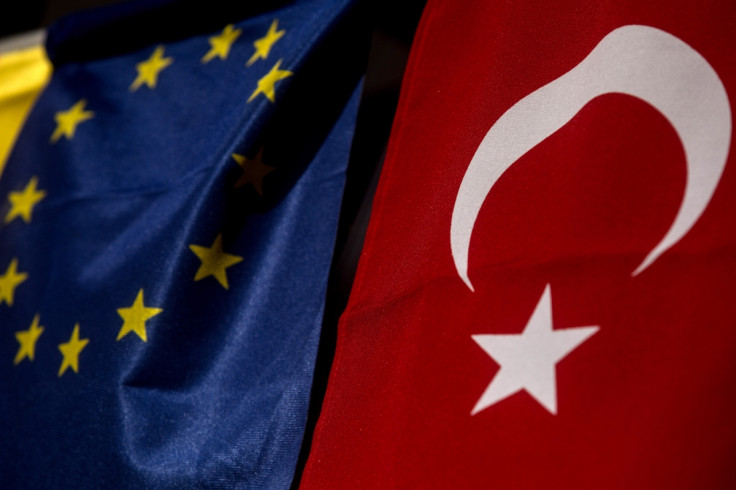EU Parliament calls to suspend Turkey membership talks condemning post-coup 'repressive measures'
The resolution condemns the government's security clampdown that followed the failed July military coup.

The European Parliament has voted in favour of a motion calling to temporarily suspend Turkey's accession talks to the European Union following Ankara's post-coup security clampdown.
The lawmakers, who are directly elected by European citizens, voted 479 to 37 in favour of a non-binding resolution urging the European Commission and EU member states' government to freeze negotiations, a largely symbolic gesture since, as Reuters reported, neither side expects Turkey to be in a position to join the EU for very many years to come.
"The European Parliament ... strongly condemns the disproportionate repressive measures taken in Turkey since the failed military coup attempt in July," the motion read, while also mentioning a commitment to keeping Turkey "anchored" to the EU.
Turkey first applied to join the EU in 1987. It took 10 years for the country to be considered an eligible candidate, and another eight to open formal negotiations in 2005. The negotiations involve 35 areas, or chapters, only one of which has been completed and closed in the past 11 years.
A promise to revive membership talks, as well as ensuring visa-free travel for Turkish citizens in the EU, was part of a controversial deal in which Turkey agreed to prevent refugees from reaching Europe's shores. That was before a military coup in July threatened to overturn the government of President Recep Tayyip Erdogan's AKP Party. In the coup aftermath, more than 110,000 people in the military, civil service, judiciary, in the press and in teaching positions, have been suspended, sacked or arrested and awaiting trial.
To punish coup plotters, Erdogan has vowed to reintroduce the death penalty in the country, which was abolished in 2004 as one of the requirements to enter the European Union. The president of the European Parliament Martin Schulz warned that this would mean giving up in the accession talk, but Erdogan rebuffed: "Look at this impertinent man saying 'we'll impose sanctions.' How can you, who have refused to take Turkey into the EU for 53 years, find the authority to make such a decision?"
Governments of Germany, France and the UK are wary of isolating Erdogan for fear of losing a strategically important ally to a foreign sphere of influence. The UK Foreign Secretary Boris Johnson, who had condemned Erdogan as "a man who is engaged in a chilling suppression of Turkish freedom of expression" during the Brexit campaign, recently warned EU countries: "We should not push Turkey into a corner, we should not overreact in a way that is against our collective interests."
This point was echoed by the EU Foreign Policy Chief Federica Mogherini. "The best way to strengthening Turkey's democracy – the most effective way – is by engaging with it, by keeping channels open," she said in an address to the European Parliament on 22 November.
Ahead of the vote, Erdogan said that whatever the result, the vote would have "no value" for Turkey.
"We have made clear time and time again that we take care of European values more than many EU countries, but we could not see concrete support from Western friends ... None of the promises were kept," he said, speaking at the Standing Committee for Economic and Commercial Cooperation of the Organization of the Islamic Cooperation (COMCEC) on 23 November.
According to reports, Erdogan added that the parliament's vote was an indicator that the union protected and sided with terrorist organisations.
© Copyright IBTimes 2025. All rights reserved.






















